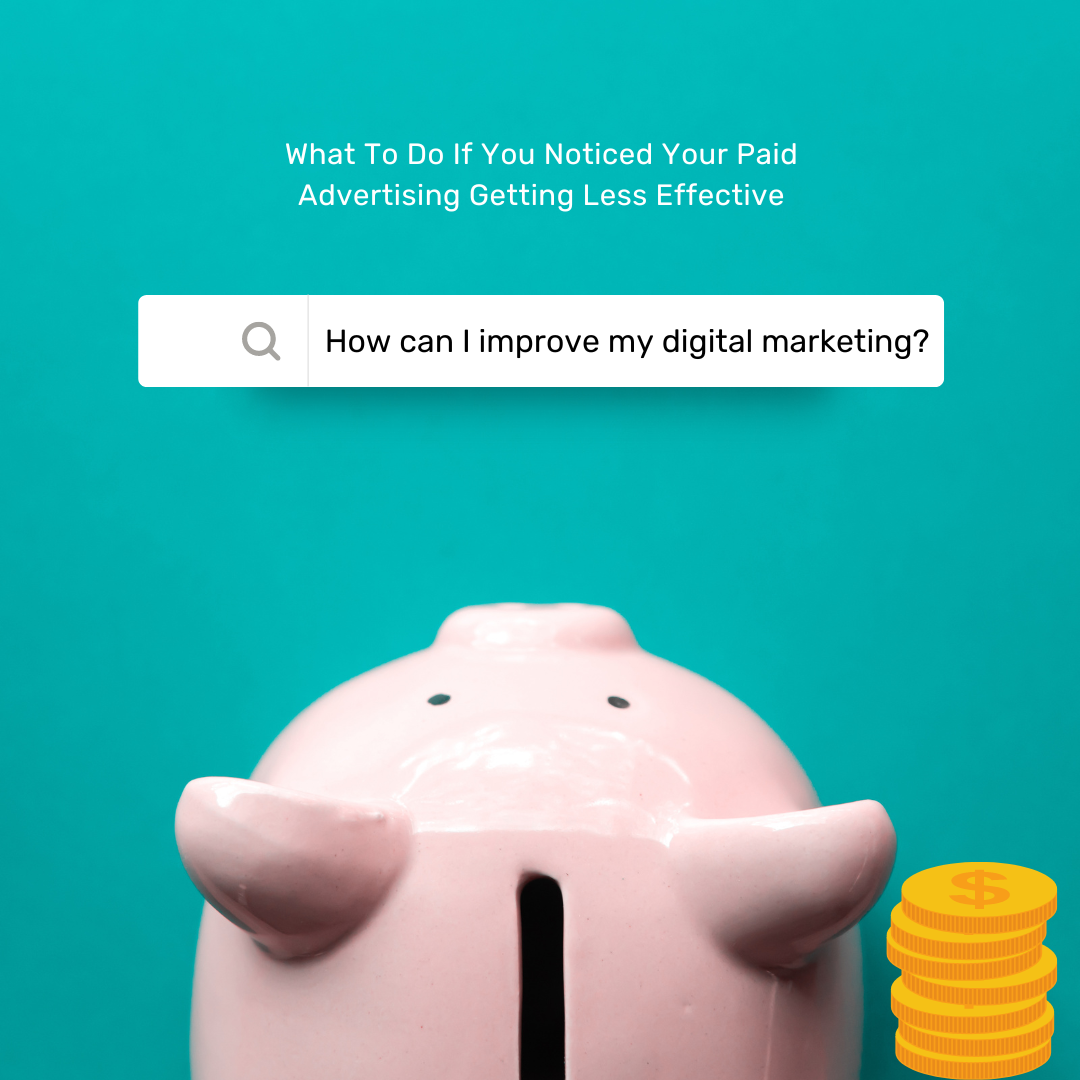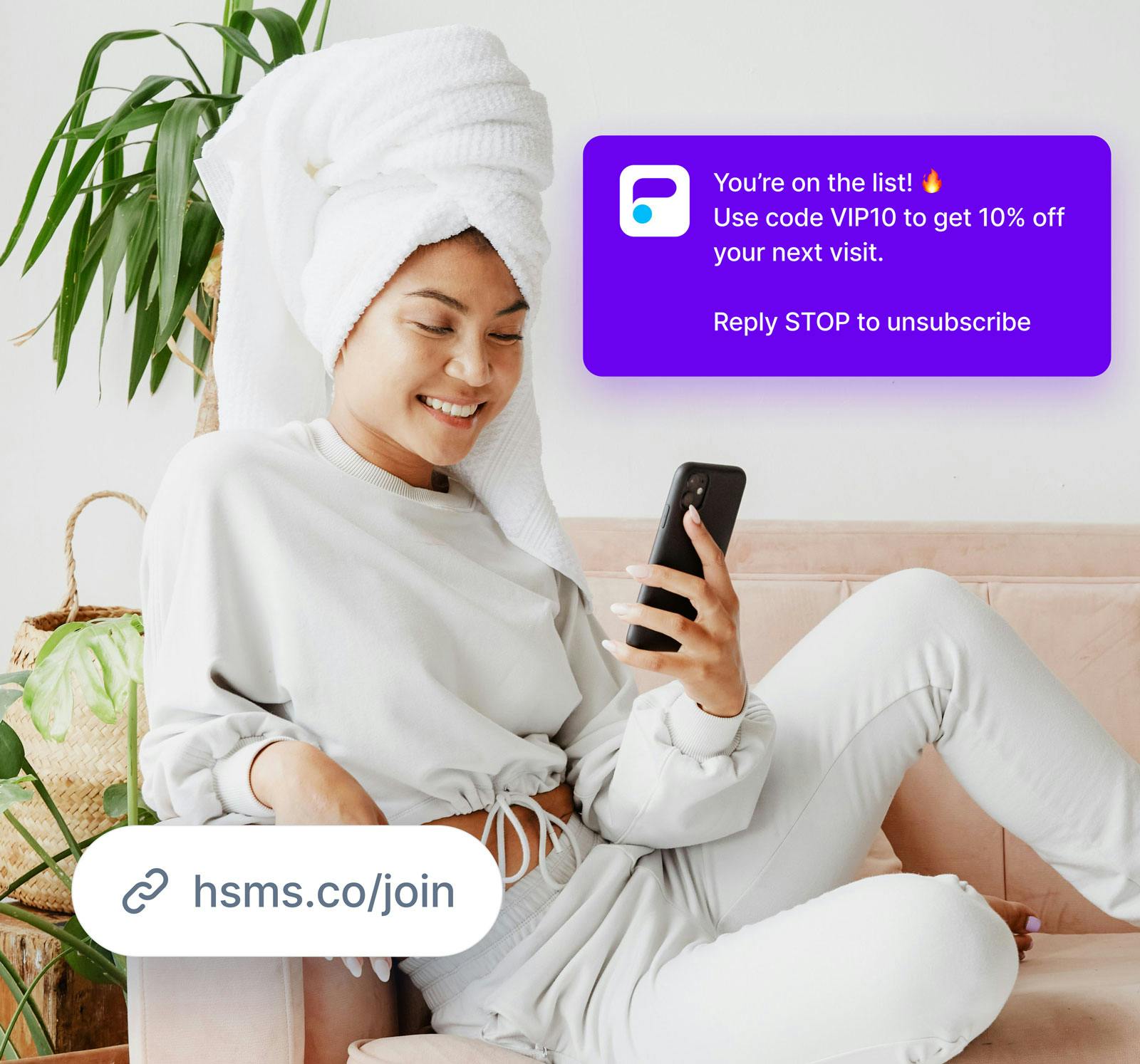Overcoming Less Effective, Pricier Paid Advertising
See the impact of regulations on search and social media ads and how SMS marketing is becoming a competitive edge for businesses of all sizes.

By Mathew Gorka
January 9, 2023
12 min read

As the world of digital marketing continues to evolve, businesses are constantly seeking the most effective ways to reach their target audience. For years, paid search engine and social media advertising have been the go-to options for companies looking to increase their online presence. However, in recent times, new cookie and tracking regulations have made these traditional methods more expensive and less effective.
In this blog post, we'll discuss the impact of existing and new regulations on search engine and social media advertising (“paid social”) and explain how SMS marketing is emerging as a competitive advantage for businesses of all sizes. We’ll start with ‘how we got here’ in the section below. If you’re more interested in ways to get ahead of the obstacles and crush your competition, feel free to skim/scroll past it (spoiler alert: the answer is SMS marketing).
The Rise of Cookie and Tracking Regulations
Cookies and tracking technologies have been a staple of digital marketing for years. They allow businesses to track user behavior and deliver targeted ads to specific groups of people. Targeted ads proved to be a goldmine for businesses everywhere. Companies could connect with prospects who had high interest and intent in their products and services at their most probable point of conversion.
However, with privacy concerns on the rise, governments around the world have started to implement new regulations to protect their citizens' data. While privacy laws have been in effect for a long time, an uptick in personal user data protections has incrementally posed new challenges to digital marketing. Here is a brief overview of how regulations have evolved and effected the digital marketing landscape.
In 2018, the European Union introduced the General Data Protection Regulation (GDPR), which requires businesses to obtain explicit consent from users before collecting their data. This regulation has had a significant impact on the digital marketing industry, with many companies still struggling to adapt to the new requirements. The GDPR was one of the most significant regulations passed, as similar verbiage can be found across the pond in the United States.
The California Consumer Privacy Act (CCPA), a comprehensive data privacy law that went into effect on January 1, 2020, was a massive stride for protecting user data privacy in the United States. The law applies to businesses that operate in California and meet certain revenue or data collection thresholds.
Under the CCPA, businesses must provide California consumers with specific disclosures about the personal information they collect, the purposes for which they collect it, and the categories of third parties with whom they share the information. The CCPA also provides California consumers with the right to opt-out of the sale of their personal information, the right to request that businesses delete their personal information, and the right to know what personal information is being collected about them and how it is being used.
It is important to note that the CCPA is not the only data privacy law in the United States. Other states have passed similar laws, such as the Virginia Consumer Data Protection Act, and more states are expected to follow suit in the coming years. As such, businesses that collect personal information from consumers should be aware of the data privacy laws in their jurisdiction, and take steps to comply with these laws in order to avoid potential legal and financial consequences.
Most recently, Apple announced changes to their iOS 14 operating system, which will require apps to obtain user consent before tracking their behavior. This move has caused concern among businesses that rely on Google, Bing, Facebook and other social media platforms for advertising, as it could make it more difficult to track user behavior and deliver targeted ads. Many believe this is an evolution of the GDPR regulations in Europe. What makes this situation unique is that Apple is a business and not a governing body. Despite this, many believe their changes to data privacy will have an even more profound impact.
The Impact of Regulations on Paid Advertising
These new regulations have made paid search engine and social media advertising more expensive and less effective. Here are some ways in which the changing tide has affected your digital marketing efficacy.
- Since cookie regulations have tightened, it has become more difficult to track users' online behavior, which means that targeting specific audiences with paid search ads has become more challenging. This lack of data makes it more difficult to optimize ad campaigns, which leads to reduced ad performance lowering return on investment (ROI) while raising customer acquisition cost (CAC).
- The decrease in the amount of data available for tracking user behavior leads to an increase in the cost of paid search ads. As targeting becomes more challenging, the competition for ad space increases, which drives up the cost per click (CPC) for specific keywords. In turn, this makes it more expensive to run effective ad campaigns. Remember that paid ads are a bidding game, so more people bidding on the same keywords drives up the cost.
- Another factor to consider is the potential decrease in ad relevance due to the lack of user data available. Since it's more difficult to personalize ad campaigns to specific users, ads may not be as relevant to the individual user, leading to lower click-through rates (CTR) and reduced ad performance overall. As marketers, we have trained audiences to expect highly targeted and personal collateral. While capabilities have diminished, expectations have only risen, creating a larger disconnect between your marketing communications and your audience.
- With more limitations around data collection, businesses are struggling to accurately measure the impact of their paid search ads. This lack of data makes it harder to determine which campaigns are performing well and which are not, leading to missed opportunities for optimization and potential wasted ad spend.
- Increased privacy concerns among internet users means businesses need to be cautious about how they collect and use data for their paid search campaigns. Advertisers must ensure they are complying with privacy regulations, which can be a time-consuming and costly process. Failing to comply with regulations could also lead to penalties and damage to a company's reputation.
For context, in recent years, the cost per click for paid search engine advertising has increased significantly. For example, in 2019, the average cost per click for a Google AdWords ad was $2.69. By 2021, this had increased to $3.17. Similarly, the cost of advertising on Facebook has increased by 90% over the past five years.
These rising costs, combined with the decreased effectiveness of targeting, have made traditional paid advertising methods less attractive to businesses. Many companies are now seeking alternative methods to reach their target audience.
Enter SMS Marketing
One of the most effective alternatives to traditional paid advertising is SMS marketing. SMS marketing involves sending text messages to a group of subscribers who have opted in to receive marketing messages. This method of marketing is not affected by cookie and tracking regulations, making it an attractive option for businesses looking to reach their target audience.
The Benefits of SMS Marketing
There are several benefits to using SMS marketing. First and foremost, it is a cost-effective method of marketing. Unlike paid search engine and social media advertising, which can be very expensive, sending a text message is relatively cheap. Many SMS marketing platforms charge only a few cents per message, making it an affordable option for businesses of all sizes. Competitively priced platforms like Helios ensure maximum return on your marketing communications!
Additionally, SMS marketing is highly targeted. Unlike traditional advertising methods that rely on user behavior and tracking data, SMS marketing targets users who have explicitly opted in to receive marketing messages. This means that businesses can be confident that their message is being delivered to people who are interested in their products or services.
Another benefit of SMS marketing is its high open rate. According to a study by MobileSquared, 98% of text messages are opened and read within five minutes of being received. This is significantly higher than the open rates for email marketing, which are typically around 20%. In short, SMS Marketing > Email Marketing.
Finally, SMS marketing is highly customizable. Businesses can send targeted messages based on their customers' preferences, interests, and behavior. For example, a clothing retailer could send messages to customers who have previously purchased a specific type of clothing, such as dresses or shoes. Fitness studios can offer class packages to preferred instructors. And the list goes on.
As the cost and effectiveness of traditional paid advertising methods continue to decline, SMS marketing is emerging as a competitive advantage for businesses. It is a cost-effective, highly targeted, and customizable method of marketing that is not affected by cookie and tracking regulations.
As a result, we can expect to see more businesses turn to SMS marketing in the coming years. In fact, according to a study by MobileSquared, 63% of businesses plan to increase their use of SMS marketing in the next 12 months.
Additionally, the rise of mobile devices has made SMS marketing even more important. According to Statista, there are over 4.8 billion mobile phone users worldwide, and this number is expected to continue to rise in the coming years. This presents a significant opportunity for businesses to reach their target audience through SMS marketing.
Conclusion
In conclusion, the rise of cookie and tracking regulations has made traditional paid search engine and social media advertising more expensive and less effective. However, SMS marketing is emerging as a competitive advantage for businesses. It is a cost-effective, highly targeted, and customizable method of marketing that is not affected by cookie and tracking regulations. As a result, we can expect to see more businesses turn to SMS marketing in the coming years as they seek to reach their target audience in a more cost-effective and effective manner.
So, if you are a business looking to improve your digital marketing strategy, it is time to start considering SMS marketing. It can help you connect with your target audience, drive engagement and increase your bottom line. Remember, when it comes to digital marketing, SMS marketing is the way to go!
Ready to level up your text message marketing?
